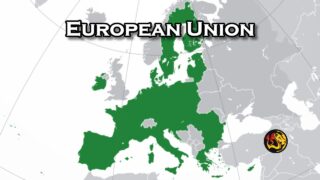by Stefan J. Bos, Chief International Correspondent Worthy News
BRUSSELS (Worthy News) –
The case stems from 2016 when the European Union’s executive European Commission ordered Ireland to recover the missing billions.
The European Court of Justice’s decision resulted from some ten years of legal wrangling. It came hours after the company unveiled new products to revitalize its iPhone, Apple Watch, and AirPod lineups.
The news also renewed questions about Berkshire Hathaway, the firm of U.S. top investor Warren Buffett, which sold half of its Apple shares in the second quarter for a total of $76 billion.
Data showed that as Apple stock went up in the second quarter, the portfolio value of Berkshire Hathaway’s stake went from $135 billion to $84 billion.
While some shrugged off those moves, saying Apple remains an important part of Buffet’s portfolio, critics wondered whether the legendary investor knew bad news was coming for Apple.
COMPETITION DIRECTORATE
Tuesday’s ECJ move also revitalized debates about the EU’s perceived strict and complicated rules for companies seeking to expand their economic clout.
In 2016, the European Union’s competition directorate decided that Ireland had granted Apple a sweetheart tax deal that enabled it to pay a corporate tax rate as low as 0.05 percent on its European profits.
Like most Big Tech firms, Apple’s EU base is in Ireland, which offers comparatively generous tax terms and light-touch regulation.
The European Commission found that Dublin had given Apple an even sweeter tax deal than usual to preserve thousands of jobs in the country.
The Commission argued that Apple’s special treatment amounted to “illegal, market-distorting” state aid that needed to be paid back. Four years later, Apple’s appeal to the EU’s General Court, which handles appeals of Commission decisions, proved successful.
The Commission’s ruling was overturned, with the General Court finding that it hadn’t proven Ireland gave Apple a particular advantage over its peers after Apple CEO Tim Cook called it “total political crap.”
However, the European Commission then appealed to the Court of Justice of the EU, the bloc’s highest court.
OVERTURNING RULING
The ECJ agreed with antitrust commissioner Margrethe Vestager that Apple must pay 13 billion euros and that Ireland must collect it.
The ECJ also upheld the 2.4 billion euro ($2.7 billion) fine that her department levied on U.S. tech giant Google in 2017.
The court agreed that Google had been favoring its comparison shopping service in its regular search results by downranking rivals when the user searched for clothes or washing machines.
“Today is a big win for European citizens and for tax justice,” Vestager said.
Copyright 1999-2024 Worthy News. This article was originally published on Worthy News and was reproduced with permission.
The following code is how the above article is generated with the Worthy Suite WordPress Plugin.
[worthy_plugins_news_story_body]This is how you display a story with an image.
Apple Forced To Pay $14 Billion Tax To EU

by Stefan J. Bos, Chief International Correspondent Worthy News
BRUSSELS (Worthy News) –
The case stems from 2016 when the European Union’s executive European Commission ordered Ireland to recover the missing billions.
The European Court of Justice’s decision resulted from some ten years of legal wrangling. It came hours after the company unveiled new products to revitalize its iPhone, Apple Watch, and AirPod lineups.
The news also renewed questions about Berkshire Hathaway, the firm of U.S. top investor Warren Buffett, which sold half of its Apple shares in the second quarter for a total of $76 billion.
Data showed that as Apple stock went up in the second quarter, the portfolio value of Berkshire Hathaway’s stake went from $135 billion to $84 billion.
While some shrugged off those moves, saying Apple remains an important part of Buffet’s portfolio, critics wondered whether the legendary investor knew bad news was coming for Apple.
COMPETITION DIRECTORATE
Tuesday’s ECJ move also revitalized debates about the EU’s perceived strict and complicated rules for companies seeking to expand their economic clout.
In 2016, the European Union’s competition directorate decided that Ireland had granted Apple a sweetheart tax deal that enabled it to pay a corporate tax rate as low as 0.05 percent on its European profits.
Like most Big Tech firms, Apple’s EU base is in Ireland, which offers comparatively generous tax terms and light-touch regulation.
The European Commission found that Dublin had given Apple an even sweeter tax deal than usual to preserve thousands of jobs in the country.
The Commission argued that Apple’s special treatment amounted to “illegal, market-distorting” state aid that needed to be paid back. Four years later, Apple’s appeal to the EU’s General Court, which handles appeals of Commission decisions, proved successful.
The Commission’s ruling was overturned, with the General Court finding that it hadn’t proven Ireland gave Apple a particular advantage over its peers after Apple CEO Tim Cook called it “total political crap.”
However, the European Commission then appealed to the Court of Justice of the EU, the bloc’s highest court.
OVERTURNING RULING
The ECJ agreed with antitrust commissioner Margrethe Vestager that Apple must pay 13 billion euros and that Ireland must collect it.
The ECJ also upheld the 2.4 billion euro ($2.7 billion) fine that her department levied on U.S. tech giant Google in 2017.
The court agreed that Google had been favoring its comparison shopping service in its regular search results by downranking rivals when the user searched for clothes or washing machines.
“Today is a big win for European citizens and for tax justice,” Vestager said.
Copyright 1999-2024 Worthy News. This article was originally published on Worthy News and was reproduced with permission.
[worthy_plugins_news_story_title]
<div style="text-align:right; padding:0px 0px 10px 15px; float:right; width:300px;"><img src="[worthy_plugins_news_story_image name=sm_medium]" alt="" /></div>[worthy_plugins_news_story_body]